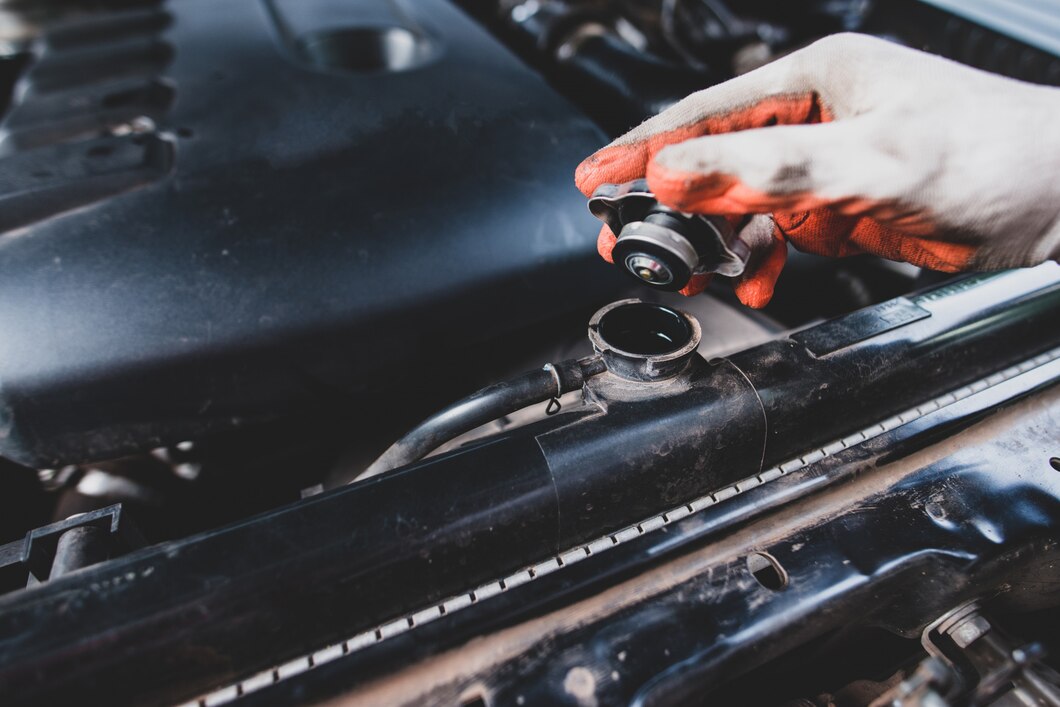A car’s radiator plays a crucial role in maintaining the engine’s temperature by dissipating heat. If the radiator fails, the engine can overheat, leading to significant damage and costly repairs. Recognizing the early signs that your radiator needs attention can save you from potential headaches and ensure your car runs smoothly. Here are some early warning signs to watch out for:
1. Engine Overheating
Frequent Overheating
One of the most obvious signs that your radiator needs attention is if your engine frequently overheats. If you notice the temperature gauge rising higher than usual, especially during normal driving conditions, it’s time to check the radiator.
Coolant Temperature Light
Most modern cars have a coolant temperature warning light on the dashboard. If this light comes on, it’s an immediate signal that your cooling system, and possibly the radiator, requires inspection.
2. Coolant Leaks
Puddles Under Your Car
If you find puddles of green, orange, or yellow fluid under your car, it’s likely coolant leaking from the radiator. Leaks can occur due to corrosion, cracks, or loose connections in the radiator or the hoses connected to it.
Low Coolant Levels
Regularly check the coolant reservoir. If you frequently find that the coolant level is low, even after topping it up, there’s likely a leak in the radiator or elsewhere in the cooling system.
3. Discolored or Sludgy Coolant
Rusty or Contaminated Coolant
Radiator coolant should typically be bright green, orange, or yellow. If you notice that the coolant has become rusty or sludgy, it indicates contamination, which could be due to corrosion inside the radiator. Contaminated coolant loses its effectiveness in regulating engine temperature and can cause overheating.
4. Radiator Fins Blocked or Damaged
Physical Inspection
Perform a visual inspection of the radiator fins. If they are bent, damaged, or covered with debris, they can’t effectively dissipate heat. This blockage can cause the engine to overheat as the radiator fails to perform optimally.
Reduced Airflow
Check for obstructions in front of the radiator, such as leaves, bugs, or road debris. These obstructions can block airflow, reducing the radiator’s efficiency in cooling the engine.
5. Unusual Noises
Hissing Sounds
If you hear a hissing sound coming from the front of your car, it might indicate a coolant leak, often from the radiator or its hoses. This sound is usually due to coolant escaping under pressure and turning into steam.
Bubbling Noise
A bubbling or gurgling noise could mean there’s air trapped in the cooling system, often a sign of a leak or an issue with the radiator cap not maintaining proper pressure.
6. Radiator Cap Issues
Loose or Damaged Cap
The radiator cap maintains the correct pressure in the cooling system. If the cap is loose, damaged, or not sealing properly, it can lead to coolant loss and reduced cooling efficiency. Check the cap for wear and ensure it’s tightly secured.
7. Heater Malfunction
Ineffective Heating
If your car’s heater isn’t blowing hot air as it should, it might be a sign of low coolant levels or a clogged radiator. The heater core relies on hot coolant from the engine to produce warm air, so any issue with the radiator can affect the heater’s performance.
8. Steam Coming from the Hood
Visible Steam
If you see steam coming from under the hood, it’s a clear indication that your engine is overheating. This could be due to a failing radiator that isn’t effectively cooling the engine. Pull over immediately and let the engine cool down before checking the coolant level and the radiator.
Preventive Measures
Regular Maintenance
To avoid radiator issues, perform regular maintenance checks. Ensure the coolant is changed as per the manufacturer’s recommendations, and inspect the radiator, hoses, and connections for signs of wear or damage.
Flush the Radiator
Periodically flushing the radiator removes any buildup of rust, scale, and debris, ensuring the cooling system operates efficiently. Follow your vehicle’s maintenance schedule for radiator flushes.
Monitor Coolant Levels
Keep an eye on the coolant levels in the reservoir. Topping up with the correct type of coolant and maintaining proper levels can prevent many radiator-related issues.
Professional Inspection
If you’re unsure about the condition of your radiator or cooling system, have it inspected by a professional mechanic. Early detection and repair can save you from more severe problems down the line.
Your car’s radiator is essential for preventing engine overheating and ensuring optimal performance. By being aware of the early signs of radiator issues, such as frequent overheating, coolant leaks, discolored coolant, unusual noises, and heater malfunctions, you can take proactive steps to address problems before they escalate. Regular maintenance and inspections are key to keeping your radiator and overall cooling system in top condition, ensuring a smooth and safe driving experience.











